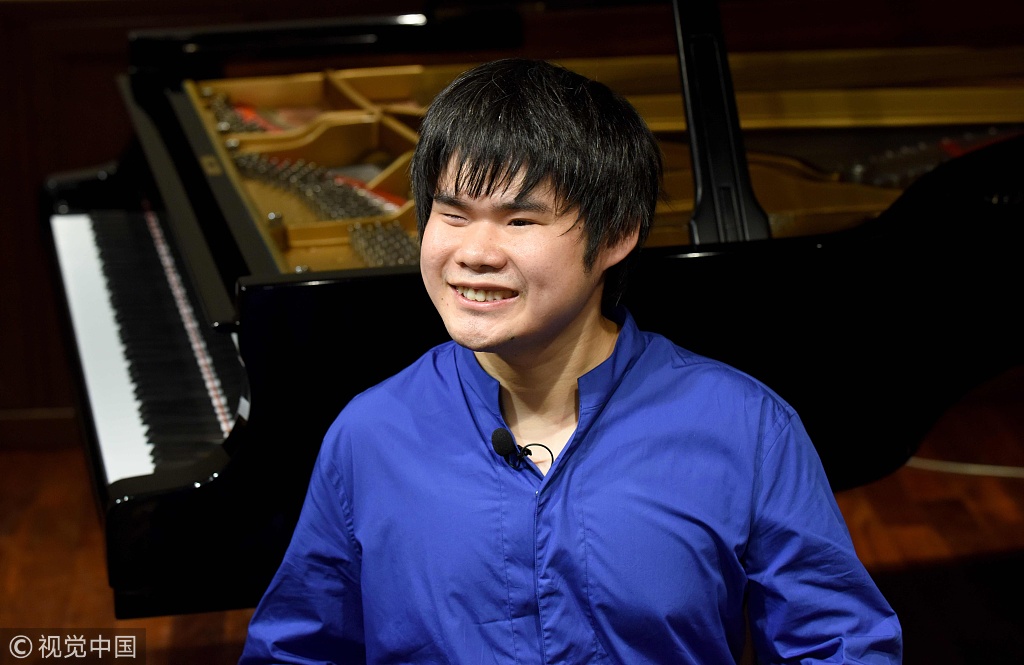Japanese blind prodigy gets joy in music


TOKYO - It has been over 10 years since pianist Nobuyuki Tsujii released his first CD. Having gained his fair share of experiences at home and abroad, the 29-year-old has successfully transcended his reputation as a blind prodigy and matured into one of the country's foremost talents in the field.
"Compared to before, when I would just play with a lot of impulse, now I'm more composed," he said.
Tsujii began taking piano lessons at age 4 and soon after was being heralded as a child genius. He released his first CD in 2007 and entered the spotlight in June 2009 when he became the first Japanese to win the Van Cliburn International Piano Competition. He has since enjoyed exceptional popularity for a classical music artist, with his latest recital tour, which ended this week, selling out long ago.
"I don't think much about my popularity," he said shyly. "Personality-wise, I'm rather cheerful and honest, and I feel very happy when I'm playing."
Indeed, even when he's playing a piece in a minor key, there's something about the way he performs that makes people smile. This infectiousness is on full display on his new CD, Beethoven: Pathetique, Moonlight, Appassionata, released on the avex label and featuring the great composer's three famous piano sonatas.
Tsujii captures the anguish Beethoven felt in confronting his deafness through fierce chord strokes and torrents of 16th notes, all the while conveying to listeners the joyfulness of music and a strong passion for life through the powerful force flowing through each piece.
"When I'm playing a piece of music, various things pop into my mind, such as the composer's thoughts and the work's historical background," he said.
In Beethoven's music, Tsujii feels the joy that exists within the composer's pain. "He overcame the hardship of losing his hearing," he said. "There's something in him that hits very close to home for me."
Tsujii does not use braille musical scores, instead learning the parts for both hands by heart through listening to a recording of each part and then adding his own interpretation to the music. He can thus produce subtly nuanced tones as well as pauses with peculiar timing, since he is confronting the composer "face-to-face", so to speak, without the intermediary of a musical score that some consider an "imperfect medium left by the composer".
The Japan News/ANN

































